HOME | home
Folk Music Index | Christmas Carols | The Celtic Christian Tradition | A Shepherds Songbook | Celtic Christian Links and Lore | Christian Thought | Being 'spiritual but not religious'? | The Ten Commandments | The Good Shepherd | Christian Communities in Peril | Humanism | Jesus and Reason | The Great Fundamentalist Hoax | Why This Scientist Believes in God | My Problem with Christianism | Who Owns Christianity? | Blood Thirsty Christians??? | Birth and Death | Celtic Christians | Celtic Crosses | Women in the Church | Christ by William Dyce | Stobo Kirk | Psalms of David | Saint Clement's Church | Rossyln Chapel | The First Presbyterian Church | Hurlbut Memorial Community Church | Christmas Eve 2009 | Photos of Church Activities | Postcards of Hurbut Church | Hurlbut Photos | Hurlbut Photos 2 | Hurlbut Photos 3 | Pentecost Sunday 2010 | Annual Picnic 2010
The Ten Commandments
and the Great Commandment
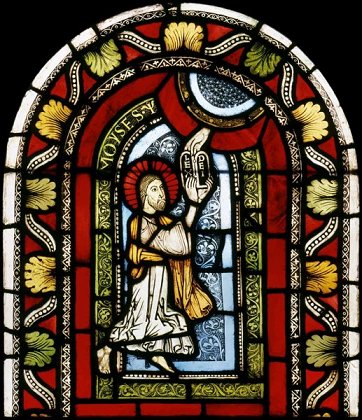
“Thou shalt have no other gods before me” ( Exodus 20:3).
“Thou shalt not make unto thee any graven image” ( Exodus 20:4).
“Thou shalt not take the name of the Lord thy God in vain” ( Exodus 20:7).
“Remember the sabbath day, to keep it holy” ( Exodus 20:8).
“Honour thy father and thy mother” ( Exodus 20:12).
“Thou shalt not kill” ( Exodus 20:13).
“Thou shalt not commit adultery” ( Exodus 20:14).
“Thou shalt not steal” ( Exodus 20:15).
“Thou shalt not bear false witness against thy neighbour” ( Exodus 20:16).
“Thou shalt not covet” ( Exodus 20:17).
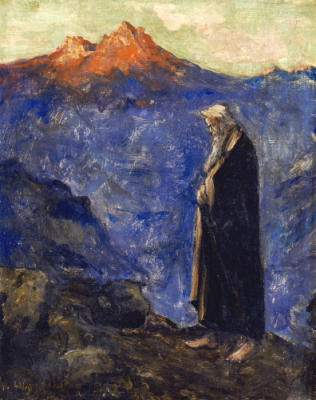
The Ten Commandments, or Decalogue, are a list of religious and moral imperatives that, according to the Hebrew Bible, were spoken by God (referred to in several names) to the people of Israel from the mountain referred to as Mount Sinai or Horeb, and later authored by God and given to Moses in the form of two stone tablets. They are recognized as a moral foundation in Judaism, Christianity and Islam.
The phrase "Ten Commandments" is generally used to refer to similar passages in Exodus 20:2–17 and Deuteronomy 5:6–21.Some scholars distinguish between this "Ethical Decalogue" and a different series of ten commandments in Exodus 34:11–27 that they call the "Ritual Decalogue". Although Exodus 34 contains ten imperative statements, the passages in Exodus 20 and Deuteronomy 5 contain fourteen or fifteen. However, the Bible assigns the count of ten to both lists. Various denominations divide these statements into ten in different ways, and may also translate the Commandments differently

THE TEN COMMANDMENTS IN VERSE
Above all else love God alone;
Bow down to neither wood nor stone.
God's name refuse to take in vain;
The Sabbath rest with care maintain.
Respect your parents all your days;
Hold sacred human life always.
Be loyal to your chosen mate;
Steal nothing, neither small nor great.
Report, with truth, your neighbor's deed;
And rid your mind of selfish greed.
In the New Testament, Jesus repeated some of the commandments in Matthew 19:16–19 and condensed them into two general commands in another:
‘“You shall love the Lord your God with all your heart, and with all your soul, and with all your mind.” This is the greatest and first commandment. And a second is like it: “You shall love your neighbour as yourself.” On these two commandments hang all the law and the prophets.’
—Matthew 22:34-40
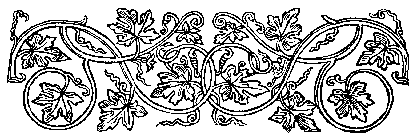
Text of the Ten Commandments
The edicts known as the Ten Commandments were related to the faithful in passages in two books or texts in the book we know as the Holy Bible. In Exodus 20:2–17, Exodus 34:11–27 and Deuteronomy 5:6–21 are the passages. These passages are provided below, using the New Revised Standard Version translation. Various religions and denominations group the commandments differently.
Exodus 20:2–17
|
Deuteronomy 5:6–21
|
Exodus 34:11–27
|
2 I am the Lord your God, who brought you out of the land of Egypt, out of the house of slavery;
3 Do not have any other gods before me.
4 You shall not make for yourself an idol, whether in the form of anything that is in heaven above, or that is on the earth beneath, or that is in the water under the earth.
5 You shall not bow down to them or worship them; for I the Lord your God am a jealous God, punishing children for the iniquity of parents, to the third and the fourth generation of those who reject me,
6 but showing steadfast love to the thousandth generation of those who love me and keep my commandments.
7 You shall not make wrongful use of the name of the Lord your God, for the Lord will not acquit anyone who misuses his name.
8 Remember the Sabbath day and keep it holy.
9 For six days you shall labour and do all your work.
10 But the seventh day is a Sabbath to the Lord your God; you shall not do any work—you, your son or your daughter, your male or female slave, your livestock, or the alien resident in your towns.
11 For in six days the Lord made heaven and earth, the sea, and all that is in them, but rested the seventh day; therefore the Lord blessed the Sabbath day and consecrated it.
12 Honor your father and your mother, so that your days may be long in the land that the Lord your God is giving you.
13 You shall not murder.
14 You shall not commit adultery.
15 You shall not steal.
16 You shall not bear false witness against your neighbor.
17 You shall not covet your neighbor’s house; you shall not covet your neighbor’s wife, or male or female slave, or ox, or donkey, or anything that
belongs to your neighbor.
|
6 I am the Lord your God, who brought you out of the land of Egypt, out of the house of slavery;
7 you shall have no other gods before me.
8 You shall not make for yourself an idol, whether in the form of anything that is in heaven above, or that is on the earth beneath, or that is in the water under the earth.
9 You shall not bow down to them or worship them; for I the Lord your God am a jealous God, punishing children for the iniquity of parents, to the third and fourth generation of those who reject me,
10 but showing steadfast love to the thousandth generation of those who love me and keep my commandments.
11 You shall not make wrongful use of the name of the Lord your God, for the Lord will not acquit anyone who misuses his name.
12 Observe the sabbath day and keep it holy, as the Lord your God commanded you.
13 For six days you shall labour and do all your work.
14 But the seventh day is a sabbath to the Lord your God; you shall not do any work—you, or your son or your daughter, or your male or female slave, or your ox or your donkey, or any of your livestock, or the resident alien in your towns, so that your male and female slave may rest as well as you.
15 Remember that you were a slave in the land of Egypt, and the Lord your God brought you out from there with a mighty hand and an outstretched arm; therefore the Lord your God commanded you to keep the sabbath day.
16 Honor your father and your mother, as the Lord your God commanded you, so that your days may be long and that it may go well with you in the land that the Lord your God is giving you.
17 You shall not murder.
18 Neither shall you commit adultery.
19 Neither shall you steal.
20 Neither shall you bear false witness against your neighbor.
21 Neither shall you covet your neighbor’s wife. Neither shall you desire your neighbor’s house, or field, or male or female slave, or ox, or donkey, or anything that belongs to your neighbor.
|
11 Observe what I command you today. See, I will drive out before you the Amorites, the Canaanites, the Hittites, the Perizzites, the Hivites, and the Jebusites.
12 Take care not to make a covenant with the inhabitants of the land to which you are going, or it will become a snare among you.
13 You shall tear down their altars, break their pillars, and cut down their sacred poles
14 (for you shall worship no other god, because the Lord, whose name is Jealous, is a jealous God).
15 You shall not make a covenant with the inhabitants of the land, for when they prostitute themselves to their gods and sacrifice to their gods, someone among them will invite you, and you will eat of the sacrifice.
16 And you will take wives from among their daughters for your sons, and their daughters who prostitute themselves to their gods will make your sons also prostitute themselves to their gods.
17 You shall not make cast idols.
18 You shall keep the festival of unleavened bread. For seven days you shall eat unleavened bread, as I commanded you, at the time appointed in the month of Abib; for in the month of Abib you came out from Egypt.
19 All that first opens the womb is mine, all your male livestock, the firstborn of cow and sheep.
20 The firstborn of a donkey you shall redeem with a lamb, or if you will not redeem it you shall break its neck. All the firstborn of your sons you shall redeem.
No one shall appear before me empty-handed.
21 For six days you shall work, but on the seventh day you shall rest; even in ploughing time and in harvest time you shall rest.
22 You shall observe the festival of weeks, the first fruits of wheat harvest, and the festival of ingathering at the turn of the year.
23 Three times in the year all your males shall appear before the Lord God, the God of Israel.
24 For I will cast out nations before you, and enlarge your borders; no one shall covet your land when you go up to appear before the Lord your God three times in the year.
25 You shall not offer the blood of my sacrifice with leaven, and the sacrifice of the festival of the passover shall not be left until the morning.
26 The best of the first fruits of your ground you shall bring to the house of the Lord your God.
You shall not boil a kid in its mother’s milk.
27 The Lord said to Moses: Write these words; in accordance with these words I have made a covenant with you and with Israel.
|
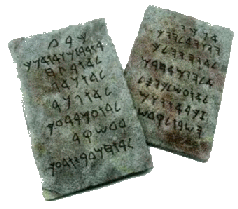
Notes:
The Roman Catholic Church uses the translation 'kill' (less specific and more inclusive) instead of 'murder'.
Some Lutheran churches use a slightly different division of the Ninth and Tenth Commandments (9. Thou shalt not covet thy neighbor's house; 10. You shall not covet your neighbor’s wife, or his workers, or his cattle, or anything that is your neighbor’s).
Sources within Judaism assert that this is a reference to kidnapping, whereas Leviticus 19:11 is the Biblical reference banning the stealing of property. This understanding is based on the Talmudical hermeneutic by which this must refer to a capital offense just as the previous two commandments refer to capital offenses.
The Talmudic Division is the breakdown held by modern Judaism, and dates to at least the Third Century. The "Philonic Division", which dates to the first century, is found in the writings of Philo and Josephus. They ended the first commandment after verse 3 and list the second commandment as verses 4-6, similar to most Protestants (non-Lutheran) and the Eastern Orthodox Church.

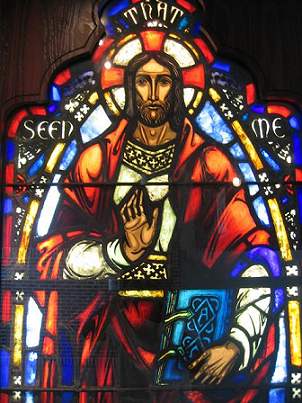
Love the Greatest Commandment
The Great Commandment
The Great Commandment in Judaism is the name commonly given to a part of Leviticus 19:18 in the Torah:“ Love your neighbor as yourself: I am the LORD. ”
This Torah verse represents but one of several versions of the Golden Rule. It is seemingly the oldest written version in a positive form. The Great Commandment as well as the proverbial Golden Rule calls for others the equal manner and respect we want for ourselves.
Jesus teaches The Great Commandment above all others
Mark 12:29 And Jesus answered him, The first of all the commandments [is], Hear, O Israel; The Lord our God is one Lord:
Mark 12:30 And thou shalt love the Lord thy God with all thy heart, and with all thy soul, and with all thy mind, and with all thy strength: this [is] the first commandment.
Mark 12:31 And the second [is] like, [namely] this, Thou shalt love thy neighbour as thyself. There is none other commandment greater than these.
Mark 12:34 And when Jesus saw that he answered discreetly, he said unto him, Thou art not far from the kingdom of God. And no man after that durst ask him [any question].
Matt 22:37 Jesus said unto him, Thou shalt love the Lord thy God with all thy heart, and with all thy soul, and with all thy mind.
Matt 22:38 This is the first and great commandment.
Matt 22:39 And the second [is] like unto it, Thou shalt love thy neighbour as thyself.
Matt 22:40 On these two commandments hang all the law and the prophets.
Luke 10:25 And, behold, a certain lawyer stood up, and tempted him, saying, Master, what shall I do to inherit eternal life?
Luke 10:26 He said unto him, What is written in the law? how readest thou?
Luke 10:27 And he answering said, Thou shalt love the Lord thy God with all thy heart, and with all thy soul, and with all thy strength, and with all thy mind; and thy neighbour as thyself.
Luke 10:28 And he said unto him, Thou hast answered right: this do, and thou shalt live.
Love Your Enemies
Matt 5:43 Ye have heard that it hath been said, Thou shalt love thy neighbour, and hate thine enemy.
Matt 5:44 But I say unto you, Love your enemies, bless them that curse you, do good to them that hate you, and pray for them which despitefully use you, and persecute you;
Matt 5:45 That ye may be the children of your Father which is in heaven: for he maketh his sun to rise on the evil and on the good, and sendeth rain on the just and on the unjust.
Matt 5:46 For if ye love them which love you, what reward have ye? do not even the publicans the same?
Matt 5:47 And if ye salute your brethren only, what do ye more [than others]? do not even the publicans so?
Matt 5:48 Be ye therefore perfect, even as your Father which is in heaven is perfect.
Luke 6:27 But I say unto you which hear, Love your enemies, do good to them which hate you,
Luke 6:28 Bless them that curse you, and pray for them which despitefully use you.
Luke 6:32 For if ye love them which love you, what thank have ye? for sinners also love those that love them.
Luke 6:33 And if ye do good to them which do good to you, what thank have ye? for sinners also do even the same.
Luke 6:34 And if ye lend [to them] of whom ye hope to receive, what thank have ye? for sinners also lend to sinners, to receive as much again.
Luke 6:35 But love ye your enemies, and do good, and lend, hoping for nothing again; and your reward shall be great, and ye shall be the children of the Highest: for he is kind unto the unthankful and [to] the evil.
Luke 6:36 Be ye therefore merciful, as your Father also is merciful.
Thom 95:x Jesus said: If you have money, do not lend at interest, but give them to him from whom you will not receive them back.
A New Commandment I Give
John 13:34 A new commandment I give unto you, That ye love one another; as I have loved you, that ye also love one another.
John 13:35 By this shall all [men] know that ye are my disciples, if ye have love one to another.
John 15:9 As the Father hath loved me, so have I loved you: continue ye in my love.
John 15:12 This is my commandment, That ye love one another, as I have loved you.
John 15:17 These things I command you, that ye love one another.


'Feuch air fear coimhead Israil Cadal chan aom no suain.'
(The Shepherd that keeps Israel, He slumbers not nor sleeps.)